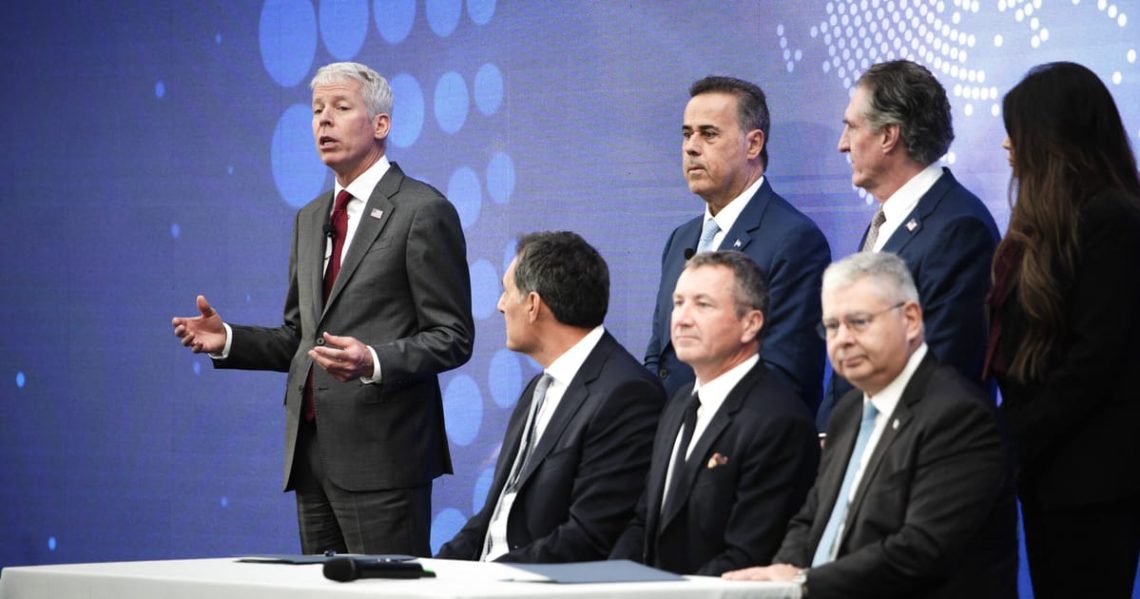BRUSSELS — On the same day world leaders arrived at the COP30 summit in Brazil to push for more action on climate change, Greece announced it will start drilling for fossil fuels in the Mediterranean Sea — with U.S. help.
Under the deal, America’s biggest oil company, ExxonMobil, will explore for natural gas in waters northwest of the picturesque island of Corfu, alongside Greece’s Energean and HELLENiQ ENERGY.
It’s the first time in more than four decades that Greece has opened its waters for gas exploration — and the administration of U.S. President Donald Trump is claiming it as a victory in its push to derail climate action and boost the global dominance of the U.S. fossil fuel industry.
It comes three weeks after the U.S. successfully halted a global deal to put a carbon tax on shipping, with the support of Greece.
“There is no energy transition, there is just energy addition,” said U.S. Interior Secretary and energy czar Doug Burgum, who was present at the signing ceremony in Athens on Thursday, alongside U.S. Secretary of Energy Chris Wright and the new U.S. Ambassador to Greece Kimberly Guilfoyle.
“Greece is taking its own natural resources, and we are working all together toward energy abundance,” Burgum added, describing Greece’s Prime Minister Kyriakos Mitsotakis as a leader who “bucks the trend.”
Only a few hours later, U.N. secretary-general Antonio Guterrez made an impassioned plea for countries to stop exploring for coal, oil and gas.
“I’ve consistently advocated against more coal plants and fossil fuel exploration and expansion,” he said at a COP30 leaders’ summit in Belém, Brazil. Donald Trump was not among the many world leaders present.
Not listening
“America is back and drilling in the Ionian Sea,” said Guilfoyle, the U.S. ambassador, at the Athens ceremony.
Drilling for natural gas — a fossil fuel that is a major contributor to global warming — is expected to start late next year, or early 2027.
Greece’s Minister of Environment and Energy, Stavros Papastavrou, hailed the agreement as a “historic signing” that ends a 40-year hiatus in exploration.
Last month, Greece and Cyprus — both major maritime countries — were the only two EU countries that voted to halt action for a year on a historic effort to tax climate pollution from shipping. Greece claimed its decision had nothing to do with U.S. pressure, which several people familiar with the situation said included threats to negotiators.
Thursday’s ceremony took place on the sidelines of the sixth Partnership for Transatlantic Energy Cooperation (P-TEC) conference, organized in Athens by the U.S. and Greek governments, along with the Atlantic Council.
Greece aims to showcase its importance as an entry point for American liquefied natural gas (LNG), bolstering Europe’s independence from Russian gas. LNG from Greece’s Revithoussa terminal is set to reach Ukraine this winter through the newly activated “Vertical Corridor,” an energy route linking Greece, Bulgaria, Romania and Moldova.
The post As UN decries fossil fuel expansion, Greece starts drilling for gas in Mediterranean appeared first on Politico.




